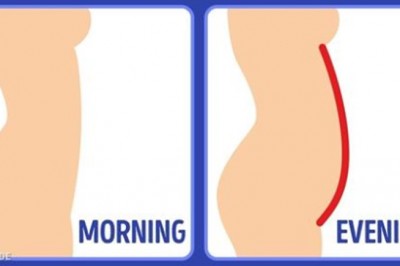1. Low Amount Of Fat In Diet
The main feature of the “Japanese food guide spinning top” is the predominance of carbohydrates over low amounts of fat. It’s also recommended to reduce the amount of salt, processed foods, sweets, and drinks containing a lot of sugar.
2. Product Structure
 © moniquemk/ depositphotos © kibsri/ depositphotos © vectorpro/ depositphotos
© moniquemk/ depositphotos © kibsri/ depositphotos © vectorpro/ depositphotos
All the products are divided into several groups — each of them has a recommended number of portions per day (the size of the portions depends on the age and gender of a person). The basis of the diet is cereals and grains, which are followed by vegetables (fresh, processed, and in soups), meat, and fish dishes. Fruits and dairy products are suggested at 2 portions per day.
3. Tradition
Not only is it important what we eat, but how we eat it. It’s traditional for the Japanese to enjoy their meals. Moreover, it’s recommended to find an optimal rhythm for your body and follow it, trying to have meals at approximately the same time daily.
4. Local Products
The diet is focused on local and seasonal products like rice or fish with the rare exception of including international dishes.
5. Well-Balanced Meals
 © Donnay/ depositphotos
© Donnay/ depositphotos
Every meal should be well-balanced and contain products from several food groups. For example, a typical school lunch in Japan consists of rice, meat or fish, Miso soup, a glass of milk, and a fruit.
6. Proper Attitude
Conscious attitude toward nutrition is formed from elementary school. Lunch is not a break but an integral part of education. During lunchtime, nobody hurries schoolchildren and after finishing their lunch, kids clean the tables themselves.
7. Quality Over Quantity
It’s important to have moderate meals as well as keep a balance between the amount of food eaten and calories spent. The latter is achieved by different physical activities.
8. Fresh Products
 © Nataly-Nete/ depositphotos
© Nataly-Nete/ depositphotos
Keeping ready-made food for a long time and cooking in advance is not something that is considered healthy in Japan. The focus is always on fresh products.
With all these principles, it's no wonder Japanese people are so healthy. Remember, it's never too late to start following them yourself.
SoItWas on brightside.me





















Facebook Conversations